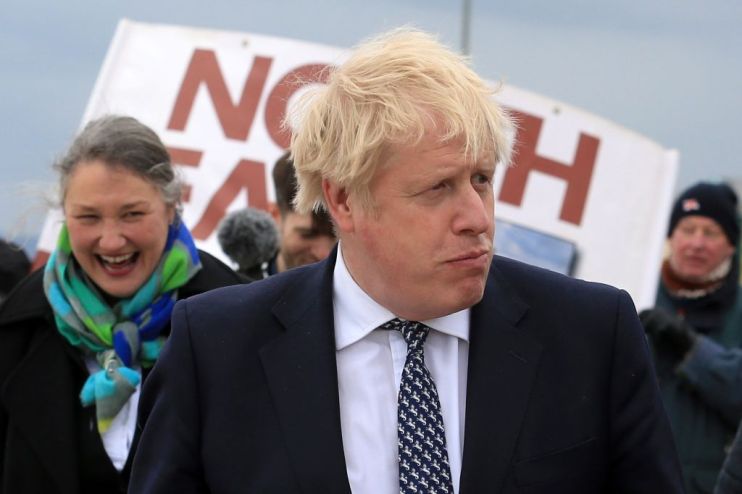Five things to look for in the ‘super Thursday’ UK elections

Around 48m people in the UK will be eligible to vote in elections today in what is being dubbed “super Thursday”.
This includes Holyrood elections in Scotland, Welsh Senedd elections, Hartlepool’s by-election and mayoral contests in London, Greater Manchester, West Midlands, Tees Valley, Liverpool, West Yorkshire.
There will also be more than 100 council elections across England.
City A.M. takes a look at the five things to watch for as the results roll in between Friday and Sunday.
SNP look to claim referendum mandate
Nicola Sturgeon has claimed that if the Scottish National Party (SNP) win another majority in Holyrood elections that it will give the party a mandate for another UK independence referendum.
Polls have bounced around a bit during the campaign, however the SNP have consistently held a clear lead over the Conservatives and Labour.
A YouGov poll conducted just days ago had the SNP on 52 per cent of the vote, the Tories on 20 per cent and Labour on 19 per cent.
Boris Johnson has already said on many occasions that he will not grant an independence referendum, regardless of the result in today’s election.
If the SNP win a majority in the election and Johnson refuses to grant a referendum, then Sturgeon has vowed to organise an unsanctioned “wildcat” vote that would plunge the UK into a constitutional crisis.
Red Wall cracked again?
Labour look like they are in trouble in the Hartlepool by-election, with the Tories leading by 17 points in a Survation poll from earlier this week.
The Conservative candidate Jill Mortimer is a farmer and local councillor in North Yorkshire, while Labour’s candidate is former MP Dr Paul Williams – an NHS doctor who works in the local Hartlepool hospital.
The Conservatives have never won the North East constituency, which was created in 1974, but came close in the 2019 election when Boris Johnson was able to win over a swathe of traditional Labour seats in the Midlands and the North.
Hartlepool voted overwhelmingly for Brexit and is seen as more socially conservative than Labour’s current metropolitan membership.
Labour was able to hold onto the constituency in 2019 thanks to the Brexit Party splitting the pro-Brexit vote, however this time around it is thought most of these voters will rally behind the Tories.
Labour leader Sir Keir Starmer will come under heavy pressure if Labour lose the seat, particularly from the left of the party.
He will likely face allegations that he is not the man to re-win seats in Labour heartlands and lead the party back to victory.
Two key mayoral contests
The West Midlands and Tees Valley mayoral contests, like Hartlepool, will act as bellwether contests to see how the Tories and Labour are performing in the mind of the electorate.
Both mayoralties are currently held by the Conservatives, with polling suggesting that both will win re-election.
Tees Valley mayor Ben Houchen has benefited from a package of spending from the Tory government in his region, while the announcement that Tees Valley will be a post-Brexit freeport will also create thousands of jobs in the area.
The traditionally Labour region has been turning more to the Conservatives for a number of years.
The West Midlands is historically a bellwether region, with the majority of its MPs usually sitting with whichever party won the most recent General Election.
Its Tory mayor Andy Street is coming up against former Labour Treasury minister Liam Byrne, who was expected to win last year but has slid in polling.
Losses in these two contests for Labour, along with Hartlepool, would be a disaster for Starmer.
London landslide?
Sadiq Khan looks all but certain to deliver a second straight mayor of London election victory for Labour.
Polls have consistently put him in front of Tory challenger Shaun Bailey by 20+ points over the past year, however a YouGov poll days ago closed that margin to 12 points.
Nevertheless, Khan is widely expected to win in a landslide and could claim the largest ever margin of victory.
He will be also looking to win more than 50 per cent of the primary vote, which would give him a victory in the first round of voting – a feat no other candidate has achieved.
The only thing that could stop Khan from romping home by a large margin is if turnout for the poll is low.
The election has generated little interest in London and Labour fears this could mean a record low turnout.
Labour to continue Welsh dominance
Labour looks on course to win another Welsh Senedd election and keep Mark Drakeford as its first minister.
The party has won every election since the Welsh parliament was created in 1999, however the Tories could finish much closer this time around and beat out Plaid Cyrmu to second place.
This would demonstrate the Conservatives have sustained the gains the party made in the 2019 General Election, when it took six constituencies off Labour and ended with 14 seats.
Labour, under Jeremy Corbyn, won 22 seats in the 2019 UK election.
The latest poll from YouGov has Labour on 36 per cent, the Tories on 29 per cent and Plaid Cymru on 20 per cent.